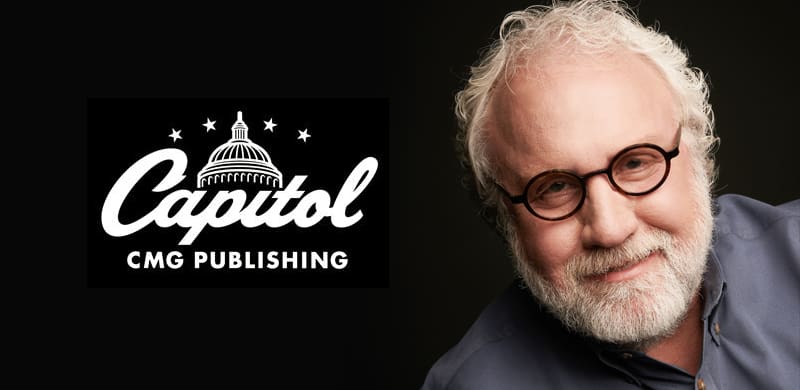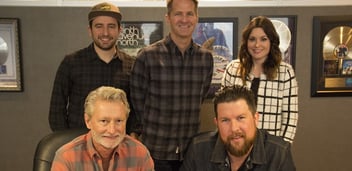
When Eddie DeGarmo recently announced his upcoming retirement as the President of Capitol CMG Publishing, it cast a shadow far beyond the walls of his employer. DeGarmo, after all, has been a key figure in every phase of the Christian music industry – from Grammy-nominated artist to record label founder. Consequently, many will feel his absence.
DeGarmo is one of a few figures in Christian music that can speak with such experience and expertise about both its storied past and exciting future. We recently asked him about the decline of digital, the rise of streaming, and what he’s learned about YouTube in recent months.
What’s been the biggest victory in publishing for you at Capitol this year?
We keep finding new sources of revenue for our writers, and that’s an important deal. Our job is to sustain them so they can write more tomorrow. We have a full complement of services around the internet and YouTube. We track songs all over the internet, and we are able to identify that content and go back and monetize it, which is cool. We have a music supervision business that does A-to-Z, soup to nuts music supervision for motion pictures. We’ve been involved in several [films] where we’ve helped with all the music, scoring, you name it. That’s a growing department and the accolades are pretty good for us. We’ve been able to win Billboard and ASCAP awards.
I think probably the most satisfying part of what I do is that I get to travel, a lot of it is international. I’ve been in jungles and deserts, airplanes and posh hotels, big churches and little churches. Pretty much everywhere I go, I hear some of our big worship songs being sung – sometimes in different languages, a lot of times in English. Worship music has, I think for the first time in 300 years, galvanized the church to the point where globally we sing the same songs, and we haven’t done that in maybe several centuries. So to go on a boat in the Amazon and hear “How Great is our God?” or “Ten Thousand Reasons” in some tribal village is pretty exciting stuff.
You mentioned finding new revenue sources. Has there been a surprising source you’ve been able to tap into?
YouTube has been really good for us.
What lessons have you learned there?
Here’s a numbing statistic: on a daily basis, there is 100 years of video being uploaded to YouTube. A whole lot of those videos have our songs unidentified because you’ve got someone singing them at a birthday party or playing them in front of an audience somewhere with their guitar, keyboard, or whatever. They’re unidentified content. They’re user-generated content, and until that content is identified, YouTube will not apply advertising dollars to those videos.
So they have a program. They want us to do this. This isn’t a situation where they don’t want us to be part of it, but they want us to identify literally the hundreds of thousands of unidentified videos through their platform. So I’ve got people that are dedicated to this and do it all day long. It’s not uncommon on some of our big songs to find several hundred thousand unique videos around the world, whether it’s Hillsong or Six Steps or Integrity, because we look after all those catalogs. It’s not uncommon to find one song that will have four or five hundred thousand unique video clips.
How do you even begin to uncover all of that?
Well, you just go after that. That’s what we do as a publisher is support our artists. As the world continues to migrate to a more digital basis, it can be a lot of things. The internet is usually involved in that, and the internet is this enormously vast distribution network that didn’t even exist in its present form 10 years ago, so it’s a very rapid pace of change that’s going on. For songwriters, artists, and rights holders, you’re able to get your music heard in places you were never able to get it heard before.
The downside to that is that there is so much music that there needs to be filters of some sort to let them know what’s cool. A real eye-opener for me is, we’re about the Universal Music family, and for years I’ve been to these global confabs where you see people from all over the world playing their indigenous music. In the last couple years I’ve seen a seismic shift in that. I don’t know that I necessarily feel that this is a good thing that’s happening, that because of the internet, YouTube, and other platforms like that, you’re seeing the music galvanize around the world. I was at one of these things in L.A. last year and heard an Egyptian rap music video, or I would hear a Korean pop girl group that you would think would be off of the new Katy Perry record, but they were four singers from Korea. So you’re seeing the world’s music homogenize, and it’s a little strange from that tip.
For example, here’s something I just found out last week. Many Americans are Hispanic and it’s becoming a big slice of who Americans are. For years a lot of record labels have been trying to find strategies to enter into Spanish-speaking markets. Well, most of the experts tell us now that 78% of Spanish-speaking people in America prefer their media in English. You wouldn’t necessarily think that on the surface, so if you’re going to do a Spanish-speaking album, it doesn’t make sense in America. It would in Mexico or South America, but not here, because most of the Spanish kids want to sing in English.
How long have you been in this position?
12 years.
Is there anything you’ve learned from publishing that you would like to have known even two years ago?
I think we all would like to have known that digital downloads were going to decline 22% year-on-year, 2014 over 2013. The change of pace is getting so much more rapid with how quickly things are moving around that I would have liked to have been part of the negotiation with Simulcast radio. I don’t think any of us really understood how fast that was going to grow. From a musical standpoint, I still think it’s pretty cool that I can meet with an 18-year-old singer-songwriter, and have them get to #1 before you know it.
With everything moving to streaming, do you feel like you’re learning how to navigate that?
Yeah, somewhat. Because we’re a global company, these things are different in different parts of the world. Whereas iTunes is suffering here, it may not be suffering in Brazil or Australia. The streaming adoption rate in Scandinavia is 40%, but in America it’s only at 10%, so I think we’re all learning what that looks like and feels like. So many musical people are focused on the amount of the global audience on the internet today because they see that as their potential audience. The experts tell us there are about two billion on the internet in 2014, but only about 800 million have access to high-speed, and that number is going to swell by 2020 to about five billion on the internet and maybe as high as four billion with high-speed. So when you think of the actual number of consumers you can reach online, that’s going to increase by five times in the next handful of years, which is exciting.
What has you frustrated right now?
The marketing channels have become very limited. As radio becomes a national format and the internet becomes simulcast the same way, it’s all become very narrow, so how do you introduce people to new music? We have some programs that answer some of that, but not all of it. We don’t have a lot of press or trade magazines in our market now like we did 10 or 15 years ago. How do we introduce those bands and make audiences aware of them?
Do you think it’s the right time for someone to take a risk, since so few are?
I do. I applaud people who take risks. I wish we had the ability as an industry to take more risks and to create more channels to help our audience be aware of the compelling music we produce.




